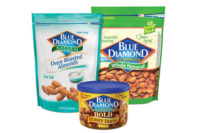A Customer’s Dream
By Andy Hanacek
In the business world, finding exactly where your company fits into the giant puzzle of commerce is half the battle to achieving success. For some companies, their niche is obvious from the get-go. But for most businesses, it takes time to establish position, particularly in marketplaces that have been mature for ages.
When Franklin, Wis.-based Baptista’s Bakery was born out of the sale of Gardetto’s to General Mills in 1999, the new business faced the same dilemma that many startup companies face: What is our best opportunity?
“We were looking for a strategic competitive niche that we could own,” Nan Gardetto, CEO of Baptista’s, explains. “We went down multiple paths. We started a Baptista’s brand as well as going down the path of contract manufacturing and private label.”
Five years later, Baptista’s found its calling.
“We realized the category of breadsticks was not large enough, and the cost of starting up a new brand from scratch was just too high,” Gardetto continues. “So we decided to focus on what we do best, and that is our ability to manufacture.”
With that decision, Baptista’s discontinued its brand and focused all its efforts and attention toward contract manufacturing of low-moisture bread-based and pretzel snack products for customers. Yet, Baptista’s is not your ordinary contract manufacturer, explains Tom Howe, the company’s president.
“There is a real need out there for someone to partner up with many different food companies, large and small, to do proprietary, customized, collaborative product development, and — that’s the key word here — then be able to manufacture the product for them,” he says. “There are people out there that can be engaged in the product development work, and there are the people out there that will do co-packing and contract manufacturing, but there aren’t many people we’re aware of that do both.”
Showing its commitment to its decision, Baptista’s almost immediately enacted a plan to improve efficiency and capacity at its 135,000-sq.-ft. bakery, sinking more than $10 million into additions and expansions. Capacity has been increased, Howe says, by more than 50% as a result.
“Also, we introduced a multitude of elements of flexibility,” he adds, “from the different types of flour we use — we currently use whole-wheat, high-protein, and pretzel flour. We have the ability to use all types of in-dough additives, seasonings and fortifications. We have a multitude of different ways to extrude and package as well.”
Baptista’s now is bearing the fruits of its labor and expanding its customer base, extending this unique relationship whenever the company believes a partnership is mutually beneficial.
“When a company is so busy focusing on its brand, its customers and its business, there’s not a lot of discretionary resources to allocate consistently on product development,” Howe explains. “It’s very limited, because things are always shifting. So we become an extended staff for our customers and potential customers, to work with them on the proprietary product development and ramping up to full manufacturing.”
It’s about People
Gardetto says that the family-like atmosphere the company fosters, from the top down through its 75 employees, is an important aspect of how Baptista’s works toward reaching its strategic goals.
“Really, our business is all about people,” she explains. “It’s about finding and retaining people with the right attitude and talent and then inspiring and motivating them to achieve more than they thought they were capable of.
“People want to make a difference — they want to be tied to creating something bigger than themselves. Our goal is to provide that opportunity to create greatness for our customers, and thus ourselves here at Baptista’s.”
In fact, if you ask the employees at Baptista’s, they’ll tell you that the family atmosphere at the company has contributed very much to the company’s success.
“The thing that I enjoy most is that I am able to interact with everybody on the floor on both shifts, days and nights, … on a basis that really allows me to understand what’s going on in their lives, understand what pressures they’re under either at home or at work, and be able to react and work through those things quickly,” says Brett Lepak, vice president of manufacturing. “That allows me to be more effective in dealing with the shift managers we have and allows me to be more effective in talking directly with the operators on the floor. It allows them to understand me, so they know what I need from them. The ability to see, talk to and touch people on the floor really makes a big difference.”
But the “people first” philosophy doesn’t end with the employees. Ask anyone at Baptista’s about the company’s products, and you’ll get back the same answer every time: “We don’t have products, we have customers.”
Although that might seem like an old cliché, Baptista’s actually lives by that motto every day. One of the company’s main creeds, Howe says, is that it will not compete with any of its customers, like many other contract manufacturers do. Without a brand and a sales force, Baptista’s is unable to do so, and even goes as far as being “very sensitive,” Howe says, to producing products for potential customers that would compete with Baptista’s existing customer base. When you are dedicated to making your customers as happy as possible, things typically get off the ground quickly.
“We have a couple major customers that have us very busy right now,” Howe admits. “And we are working hard to keep them very happy with us, because the result is a real match made in heaven.”
That said, the company has no template for operations and the development of products for such a diverse base of customers. The requirement of incorporating a large amount of flexibility, Howe believes, is what has pushed the company to its early success in its new role.
“It’s not merely manufacturing flexibility, it’s offering our customers flexibility,” he explains. “When [we] work with a multibillion-dollar food company, we work in the fashion they would like us to work, provided that it’s [mutually] beneficial. And when we work with small, what we call ‘virtual companies’ that fundamentally work out of a 12-by-15-ft. office, we operate at a higher level of allocation of our resources if we feel that the end result can have the same benefit to our customer and ourselves.”
Although many of the processes at Baptista’s are flexible and change from customer to customer, two standards endure at the company: First and foremost, Baptista’s exists to serve its customers. Second, the goal for finished product is zero defects, because with each successful product comes the potential for more business.
“From my standpoint, I think it all boils back down to people in the company,” says Lepak. “We require an enormous amount of flexibility to be able to handle the different product lines that we make. … And I really think the successful transition into doing the kind of things that we do today is related to the flexibility of the people, from operators on the floor to shift managers that we have to the management team.”
When you have that sort of versatility in place, it makes the day-to-day challenges that much easier to overcome. Marlenea Jackson, quality assurance and sanitation manager, says that collaboration across many different areas of the company would not be possible without such a close-knit group.
“One of the biggest challenges is to create something from scratch and have it take off quickly,” she says. “One of the things we’ve done to ensure alignment and focus among our various departments is to form various product teams so that every aspect of the new product is covered from formulation through packaging.
Jackson says that troubleshooting everything from allergens to special equipment needed down to the type of packaging and labeling required is done by the Baptista’s “New Item Committee.” To fulfill the customer’s expectations for the product, the entire process is proofed by the team in advance of any full production run. Mike Huber, director of product development & culinary science, says that it’s a pretty successful setup, although not every single item proposed makes it through to a finished product.
“Because many of the products we manufacture are customized,” he says, “I think the success rate is so much higher. We have customers that are looking for a certain product, and we’re able to deliver those products in a short period of time.
Yet keeping employees proud of what they’re doing, even with the ever-changing face of the customer base, isn’t always a piece of cake when there’s no visible brand on the store shelves to associate with the company. Baptista’s employees are proud of what they create, and Jackson says that the personal relationships with the customers give employees a big boost.
“We often get feedback from our customers that ‘The product’s great, we really love it. It came out better than we thought it would,’” she explains. “When we share those things with our people, or even when it comes to our AIB [American Institute of Baking] audit, just the fact that we did well on that audit itself helps our people to feel proud that they helped create something great.”
Howe says that Baptista’s partnering philosophy with its customers really helps nurture that personal relationship between employees and the businesses for which they are manufacturing product.
“Our customers are frequent visitors here and spend quite a bit of time on the floor,” he says. “And we make sure to introduce them and allow them to interact with our people out there so they can attach names and faces. … That’s very constructive for us.”
Lepak says it’s easy, though, for employees to have pride in what they do, even without the Baptista’s name floating around town.
“The folks we have working here know what we’re making,” he says. “They know who we’re making it for, and a lot of the products we make they can find in this area, so it’s not unusual for an operator to say, ‘You know what? I bought this product out at the store the other day, and this is the stuff we make, and it was great.’ They feel that sense of pride, and while it doesn’t have the Baptista’s name on it, they know that this is ours.”
Flex Time
Although Baptista’s strategy revolves around its customers, not its products, without the products it has to offer, there obviously would be no customers. Baptista’s 135,000-sq.-ft. bakery, as mentioned earlier, has plenty of flexibility built in and operates on demand in two 12-hour shifts. The sanitation department performs deep cleaning on the weekends and other tasks on the master cleaning schedule throughout the week.
The manufacturing process starts in Baptista’s skyscraping indoor bulk-storage room, where flour is stored in one of three 100,000-lb. silos. The room has the ability to hold nine silos, and the roof was constructed to be removable for whenever the company needs to expand its flour storage capacity. As Lepak explains it, the roof would be removed temporarily so the new bin could be lifted high above the walls and lowered into the storage room.
The flour system uses vacuum transfer to move the ingredients to one of three dry-blend mixers via pipe. All three silos can supply all three mixers, giving Baptista’s a nice amount of flexibility to be able to run different products on all lines, regardless of what type of flour is needed.
Baptista’s also stores its bulk corn syrup in a 10,000-lb. tank in the silo room, and two 5,000-lb. tanks of bulk soybean oil are nearby as well.
Meanwhile, on the plant floor just outside the silo room, an operator punches up the recipe needed for the product, and the CPU-controlled componentor batches and mixes together as many as eight minor ingredients, including baking soda and salt. The componentor batches the desired amounts of these parts into a hopper, which then transfers the mixture to the dry-blend mixer to join the flour.
Next in line in the production process is Baptista’s fermentation system, where flour, water, oil and yeast are mixed and left to ferment. At that point, the mixture is transferred to a cold-hold tank to stop the yeast from growing. This entire process, just like the mixing process, is computer controlled.
All three of Baptista’s lines feature continuous mixers, and during SF&WB’s visit, the plant was manufacturing bulk twists (a breadstick-style product) using the company’s patented twisting technology on Line 1, a bulk rope-shaped pretzel product on Line 2 and a band-cut pretzel product on Line 3.
At the end of the continuous mixer, the dough is cut off in timed intervals and transferred to the extruder. The dough is deposited sequentially into one of five hoppers above the extruder, then pushed through a die plate forming the shape of the piece. Some products are band-cut at the extruder, others travel down the proofer in a rope and are divided into sections by a guillotine cutter.
Each line uses independent operator interface controls, which is a great example of the specific detail-oriented controls Baptista’s has in place to keep the plant operating at optimum performance and flexibility, given the amount of customized products that can be manufactured, Howe notes.
“In every element of the process, we have short-interval recording of critical data to stay within the defined manufacturing parameters,” he explains. “By doing this through pre-established profiles and processes in the plant, it enables us to have flexibility without having the inefficiency that possibly could come with it.”
A good example of the emphasis on efficiency in the plant are the performance records posted on the wall near the extruders, where operators and managers can easily gauge the efficiency of the lines on a frequent basis.
Before entering the oven, pretzel product on each line is submerged in a caustic cooker, which gives the pretzel products a hot-water bath to scald them and give them their final color and flavor. Products then pass under a waterfall salt applicator and head into the oven. All three ovens take the product through a double-pass process, with a single pass through the oven and then one more pass through the kiln below. Each oven has three zones.
After passing through the kiln, product on Lines 1 and 2 travels up to the new seasoning room, which was built as a part of Baptista’s last large capital investment in 2005. The seasonings are applied in a controlled environment in standard seasoning drums. The drums are portable and can be wheeled off the line if the product does not require topical seasonings.
Once the product enters the packaging room, it can be diverted to a multitude of packaging options. Some of the product Baptista’s manufactures is bulk product that heads to the bulk fillers, which can load anything from large 500-700-lb. totes to smaller 25-40-lb. bulk cases.
If the product is not destined for the bulk fillers, it travels along a cross-conveyor to the form/fill/seal area. Baptista’s currently has six f/f/s machines, and two of them are portable to accommodate customers who demand a bulk product at a specific weight. Operators simply wheel the bagger out from under the scale, and product is portioned into bulk containers instead of a bagging machine.
At press time, Baptista’s was awaiting a seventh f/f/s machine, a horizontal bagger that would allow the company to package product in gusseted bags with a reclosable zipper in a much more efficient manner.
All packaging materials are currently stacked and stored along the outer fringes of the packaging room, a system that keeps the materials easily accessible. The shipping area has three dock doors.
The company’s R&D and QA departments share a lab off the shipping area, where employees test everything from moisture to pH to seasoning application. The QA department operates three shifts. There are also four chambers for testing the shelf-life of products. The chambers simulate different periods of time and the influence of that on product. Chamber 1 is an accelerated period of time; Chamber 2 is ambient, or the control; Chamber 3 is frozen; and Chamber 4 is room temperature.
Many companies claim to have a customer focus, but Baptista’s certainly lives it every day. Nan Gardetto worked with her father, John, and grandfather, Baptiste, at Gardetto’s for 25 years and is working hard to continue that same family atmosphere at Baptista’s — an atmosphere that communicates it’s about working hard every day to show customers and employees that the company truly cares about them.
With its dedication to flexibility in all aspects and the ability to not only originate and develop customized products, but also manufacture and pack them, Baptista’s seems to have found a perfect niche — one that could separate it from other contract manufacturers and make Baptista’s a customer’s dream. SF&WB
At a Glance
Company: Baptista’s Bakery
Founded: 1999
Headquarters: Franklin, Wis.
Plant Size: 135,000 sq. ft.
Employees: 75.
Products: Approx. 50 low-moisture bread-based and pretzel products.
Production capabilities: 500,000 lb. per week.
No. of Lines: Three (plus a pilot, product-development line)
Distribution: Across North America.
CEO: Nan Gardetto
President: Tom Howe
VP, Human Resources: Tom Mayer
VP, Finances: Jon Becker
VP, Manufacturing: Brett Lepak
VP, Sales: Mike Ellis
Dir., Product Dev. & Culinary Science: Mike Huber
Dir., QA & Sanitation: Marlenea Jackson
Dir., Purchasing: Bob Gilroy
Dir., Logistics: Rick Piorkowski



